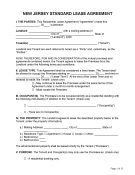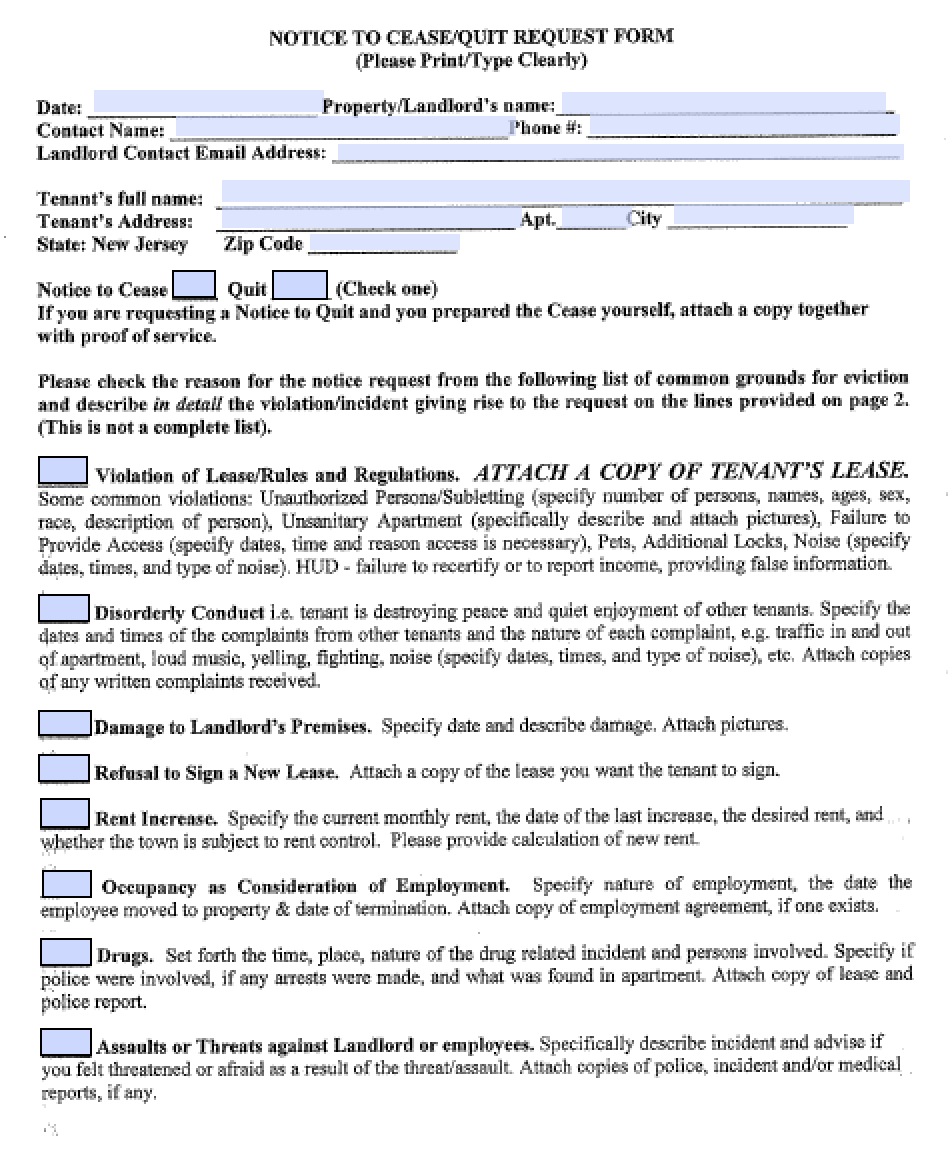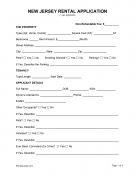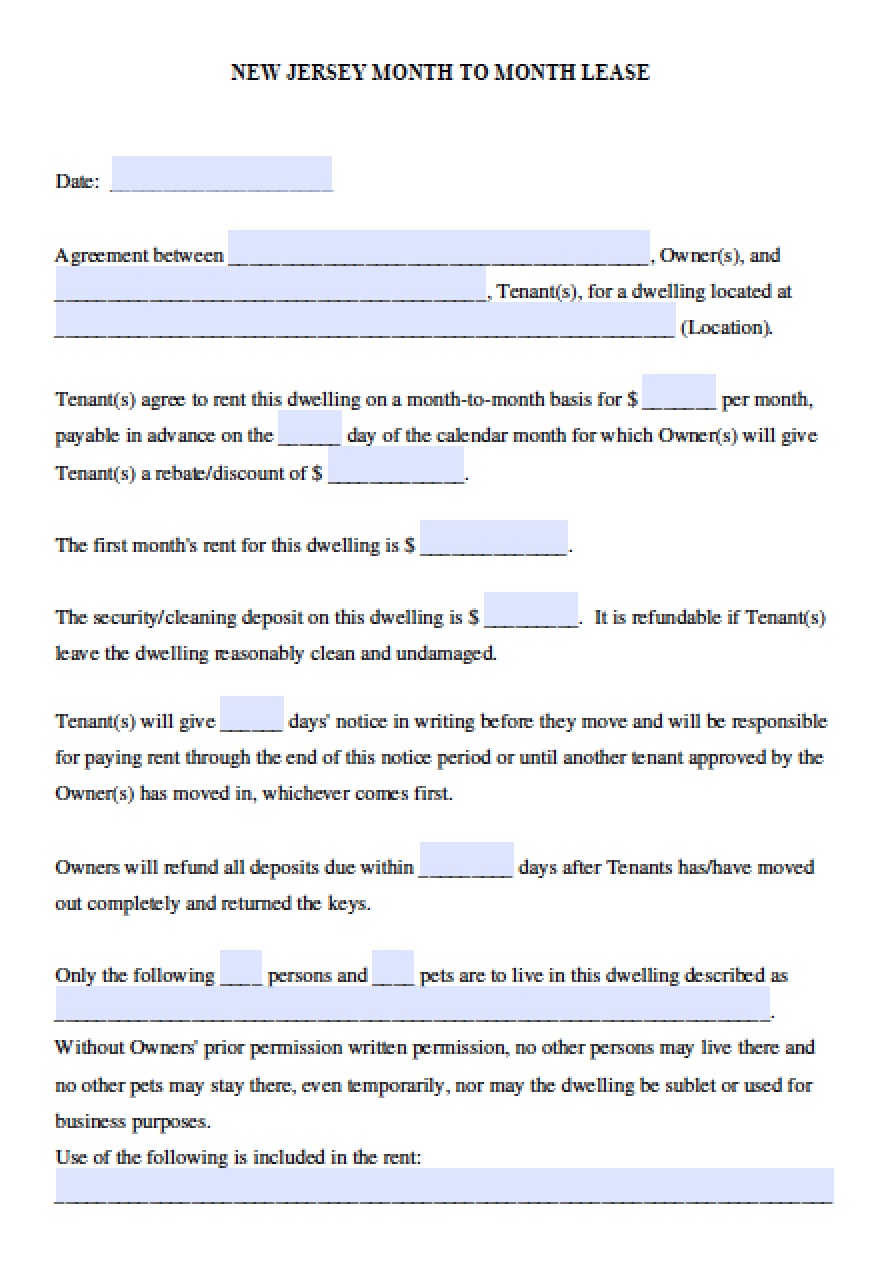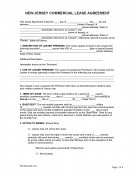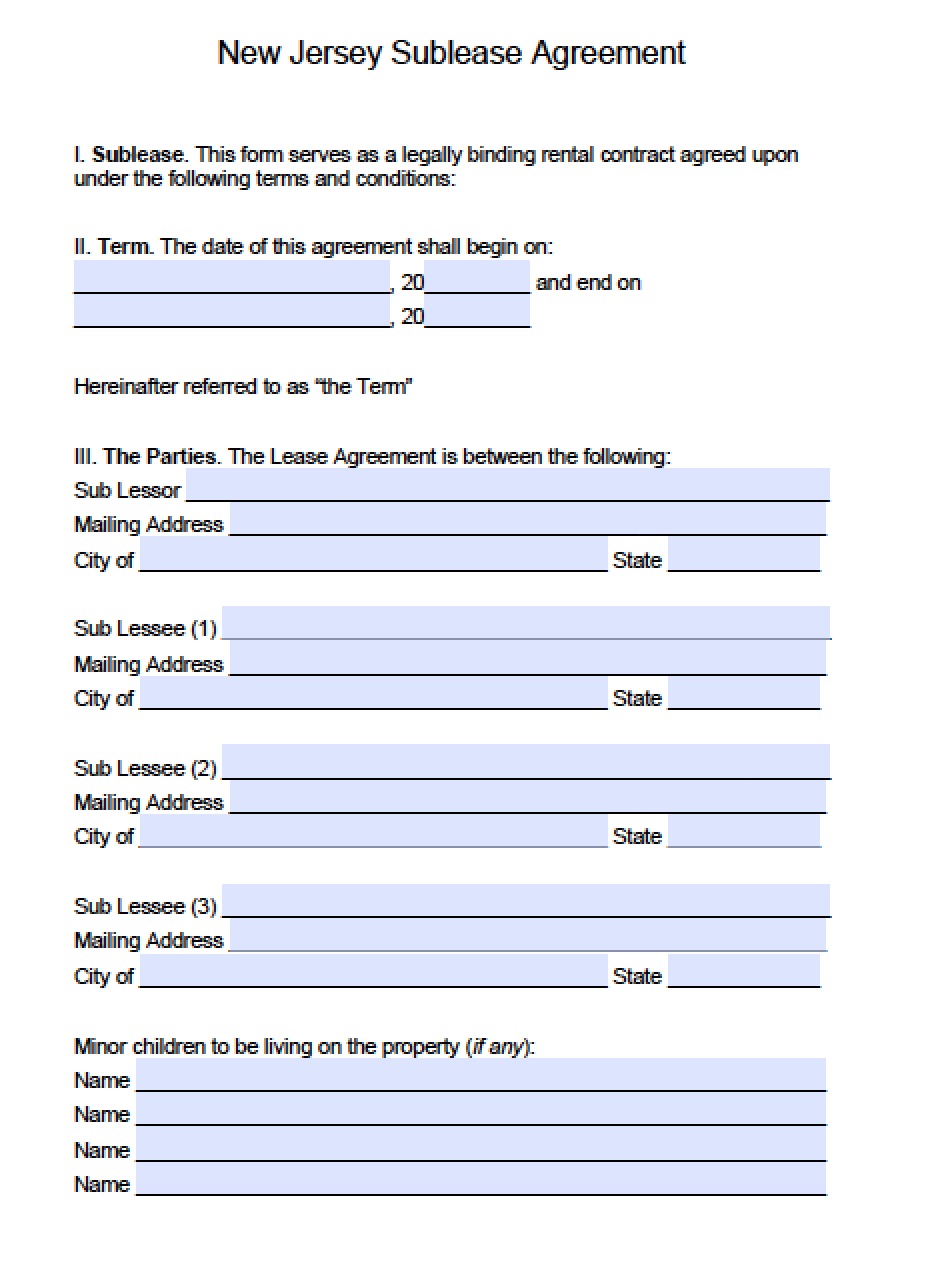The New Jersey rental agreements enable a landlord and tenant to make an arrangement where the lessee (tenant) pays a monthly amount and occupies residential or commercial space from the lessor (property owner/landlord). There are general rules by which both the landlord and tenant must abide, such as the required notice period for lease termination and the maximum amount for a security deposit. For the most part, however, as long as rent is paid by the due date stated in the contract (usually the first (1st) of every month) there should be no issues between the parties.
New Jersey Rental Lease Agreement Templates | PDF
New Jersey Lease Agreements
The New Jersey standard residential lease agreement is a contract that assigns a monthly amount to be paid by a tenant in return for occupying a property owner’s rental space. The agreement outlines the rules and regulations of the property in addition to which party will be responsible for paying utilities. Once signed, the agreement becomes legally binding and both parties will be required to operate in accordance with its terms and conditions. Before the landlord signs the contract, they…
The New Jersey notice to quit for nonpayment of rent is given to tenants that fail to pay their rent on time. The notice informs the tenant that they may be evicted due to their non-compliance with the lease terms. New Jersey landlords are only required to issue this notice if the tenant is habitually late on their payments and the landlord has accepted partial payments in the past. In such cases, the tenant will have one (1) month to vacate…
The New Jersey rental application is used to check a potential tenant’s background before signing a lease. The application benefits the landlord by decreasing the odds of the lessee not paying rent on time while serving as a test to see how serious the applicant may be about renting the space. The landlord may collect a non-refundable fee for processing the applicant’s credit, background, employment, and previous rental history. Once approved, the tenant should be given a lease, and a…
The New Jersey month-to-month lease agreement is similar to a standard rental contract except that there is no end date to the term. The period goes on perpetually until one (1) party gives notice to the other indicating their intention to quit the lease. Apart from that, the lessor and lessee must follow all State laws during the tenant’s occupancy. The landlord should be sure to screen the tenant with a rental application prior to signing the lease to make…
A New Jersey commercial lease agreement is a rental contract between a business owner, operating as an individual or entity, and an owner of retail, office, or industrial property. The landlord will usually arrange the premises to give the tenant a standard “vanilla box” set up so that the lessee may install all their necessary fixtures. Due to the amount of money invested on both sides, the landlord will usually run a credit check on the business owners/managers and review their…
The New Jersey sublease agreement is a form written for a tenant (the sublessor) who holds a master lease with a property owner and decides to let someone else (the sublessee) occupy the same space in exchange for monthly rent. The sublessor must make sure that the master lease does not limit them from subletting the premises. If it does, they must seek the written permission of the landlord to allow them to rent the entire space or a portion…
STATE DISCLOSURES
Flood Zones (§ 46:8-50) – If the property is located in a flood zone, the landlord must inform the tenant of this hazard (see the Flood Zone Locator).
Lead-Based Paint – Federal regulation requires all landlords to inform their tenants of the possible existence of lead paint in all residences built prior to 1978.
Truth in Renting Act (§ 46:8-45) – This form must be included with the lease agreement if the property has more than two (2) units (none of which are occupied by the landlord).
Child-Protection Window Guards (§ 5:10-27.1(c)) – Landlords must provide a notice to tenants informing them that the owner is required to install and maintain window guards in any unit occupied by a child of age ten (10) or younger (applicable to multiple-unit dwellings only).
SECURITY DEPOSITS
Maximum (§ 46:8-21.2) – The tenant may not be charged more than one and a half (1.5) times the monthly rental amount for the initial deposit. If the lessee remains on the property longer than a year, the landlord may not charge more than ten percent (10%) of the monthly payment as an additional deposit.
Returning (§ 46:8-21.1) – The landlord must return the deposit to the tenant within thirty (30) days of lease termination.
LANDLORD’S ACCESS/ENTRY
The landlord must provide one (1) day’s notice before entering the premises for any non-emergency purpose (§ 5:10-5.1).

